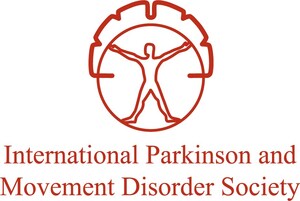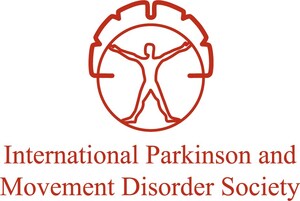
HONOLULU, Oct. 5, 2025 /PRNewswire/ -- Preliminary findings for dopaminergic cell transplantation have reported positive trends towards safety and efficacy for people with Parkinson's disease (PD), according to two studies released at the International Congress of Parkinson's Disease and Movement Disorders® in Honolulu, Hawaii, USA.
PD has long been considered an appropriate candidate for cell replacement therapy due to the loss of dopaminergic neurons in the midbrain, especially within the substantia nigra. The loss of these neurons leads to the characteristic motor and non-motor symptoms of PD, and a progressively diminished response to symptomatic treatments. Stem cell therapies aim to replenish dopaminergic neurons via intrastriatal grafting.
Two studies by Sarva et al. and Na et al. investigated the use of two different dopaminergic stem cell lines within 24 total PD patients. Patients were given a bilateral single injection within the putamen of either a high or low dose. Both studies reported better motor improvement within the high dose groups, while low dose groups remained stable. There were no serious related adverse events reported.
"Pioneering studies in Sweden more than 30 years ago suggested that fetal tissue transplantation could provide clinical benefit in PD," said Per Svenningsson, MD, PhD, Professor of Neurology and a PI at the Department of Clinical Neuroscience, Karolinska Institutet. "However, poor availability of human fetal mesencephalic tissue and side effects, such as graft-induced dyskinesias, emphasize the need for a stem cell source of dopamine neurons for PD cell-based therapy. These two studies report that transplantation of human embryonic stem cell (hESC)-derived dopamine neurons may exert functional properties suitable for PD therapy.
"The abstract presented by Sarva and co-workers show follow-up data from the published open-label study with Bemdaneprocel," Prof. Svenningsson said. "Bemdaneprocel is dopaminergic neuron progenitor cell product derived from hESCs grafted bilaterally into the putamen of patients with Parkinson's disease. It has previously been shown that putaminal 18Fluoro-DOPA_PET uptake is increased after grafting." Here, it is reported that Bemdaneprocel therapy appears overall safe and there are encouraging and stable changes from baseline in patient-reported ON times without troublesome dyskinesia and OFF times along with MDS-UPDRS Part III OFF scores. The abstract by Na and co-workers report the first results for a single-center, open-label, dose-escalation Phase 1/2a trial to evaluate the safety and exploratory efficacy of A9-DPC, an allogenic hESC-derived dopamine progenitor product previously described. In this first-in-man study, it is reported that cell transplantation is safe and there is increased 18F-FP-CIT uptake. It also improves MDS-UPDRS Part III OFF scores in a dose-dependent manner.
"The data from these two stem cell-based therapy studies demonstrate safety and preliminary efficacy against PD symptoms. Together with other efforts using hESCs or dopamine neurons differentiated from induced pluripotent stem cells, these studies support the future for larger clinical studies."
The full text of the abstract is available at mdsabstracts.org.
About the 2025 MDS International Congress of Parkinson's Disease and Movement Disorders®:
The MDS International Congress is the premier annual event to advance the clinical and scientific discipline of Movement Disorders, including Parkinson's disease. Convening thousands of leading clinicians, scientists and other health professionals from around the globe, the International Congress will introduce more than 1,800 scientific abstracts and provide a forum for education and collaboration on latest research and treatment findings.
About the International Parkinson and Movement Disorder Society:
The International Parkinson and Movement Disorder Society® (MDS), an international society of more than 12,000 clinicians, scientists, and other healthcare professionals, is dedicated to improving patient care through education and research. For more information about MDS, visit www.movementdisorders.org.
SOURCE International Parkinson and Movement Disorder Society








Share this article